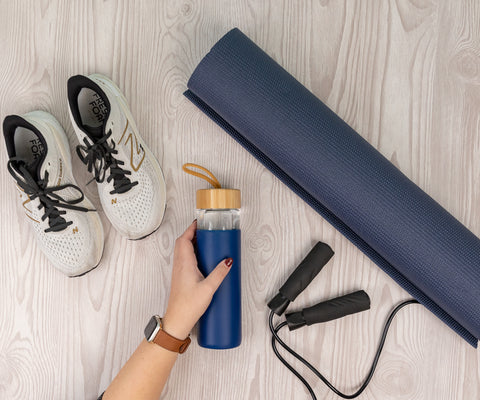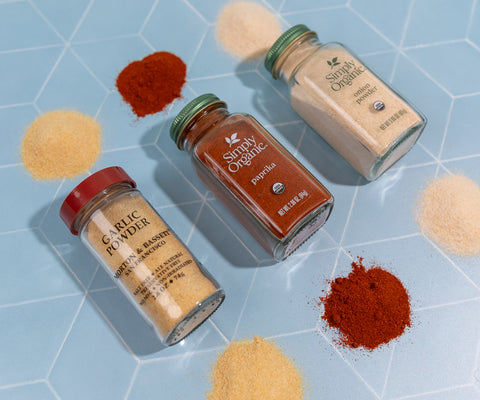If you made a New Year's resolution, day one of your positive health change was already over a month ago. You might have skipped a couple of days of cooking at home, and those pushups can wait until tomorrow, but overall, you're feeling good about the work you have already done. The only problem is that doing it again tomorrow sounds impossible, and there's no way you're skipping out on your favorite late-night TV show again tonight. Long story short, the old ways are creeping up on you, and your habits don't seem to be matching up with your goals. You know you want to have more energy, be more resilient, and think of that perfect joke before your coworker has returned to their desk — but change is hard.
Setting up new habits takes some time. Phillippa Lally, a researcher and professor at the University of Surrey in the United Kingdom, conducted a study on habit formation in 2009, which found that it takes 66 days on average to form a habit. For those who participated in her research, the time it took to create a habit ranged from 18 to 254 days. These findings tell us that new habits take time to start — and it's very likely that there just hasn't been enough time for your new habit to form, and it might not feel easy yet.
Now that you know you're still in the early stages of your change (and could be for a bit longer, but that's OK!), let's dive into matching your habits to your goals. Improved health requires adjustments in all aspects of our lives, but luckily, the little changes to your habits are more than enough to move you toward lasting health! Sleep, nutrition, and exercise work together to form our health habits, and not one could exist without the others.
The recommendation for sleep for an adult — made by the U.S. Centers for Disease Control and Prevention (CDC) and the National Institutes of Health (NIH) — is seven or more hours per night.1 Everyone is different — so when establishing your new sleep habit, remember you may need more sleep than your friends and family. Start with a small change, and after a few weeks, check in with yourself about your energy levels throughout the day. As you sleep a little more, you may find it easier to make better snack decisions throughout your day. Choose foods high in fiber, like a pear or an apple, and combine your whole fruit with natural nut butter for a snack that includes healthy fats, protein, and carbohydrates. A snack like that is the perfect fuel for the 150 minutes of weekly exercise recommended by the U.S. Department of Health and Human Services Physical Activity Guidelines for Americans.2
If your goal is to run a faster mile, lose some body fat, or have more energy, you should focus on making a small change to each of the three categories (sleep, nutrition, and exercise). By developing a habit of heading to bed 30 minutes earlier, you can get 30 more minutes of sleep each night, which will make it easier to grab a piece of whole fruit and nut butter for a snack, which will better fuel your body for a good 20 minutes of exercise, which will make it easier to fall asleep 30 minutes earlier at night. These little changes to your habits work together and are properly aligned with your goal of achieving improved health and an elevated quality of life!
Remember: Habits can take a while to form, but that doesn't mean your habits aren't in the process of doing just that! Stay committed to the little changes in your daily habits and enjoy the big changes to your health.
Connect with your local Hy-Vee dietitian on our virtual nutrition services platform and schedule a complimentary Discovery Session to learn more. Hy-Vee dietitians offer various services to help you meet your weight loss and nutrition goals, including one-on-one consultation packages, personalized menu plan programs, virtual nutrition store tours and more.
The information is not intended as medical advice. Please consult a medical professional for individual advice.
- Watson NF, Badr MS, Belenky G, et al. Recommended amount of sleep for a healthy adult: a joint consensus statement of the American Academy of Sleep Medicine and Sleep Research Society. Sleep. 2015;38(6):843–844.
- U.S. Department of Health and Human Services. (2018). Physical Activity Guidelines for Americans, 2nd edition. Retrieved from https://health.gov/paguidelines/second-edition/pdf/Physical_Activity_Guidelines_2nd_edition.pdf




